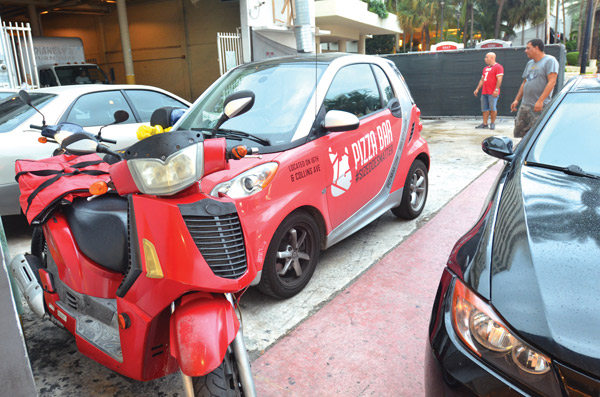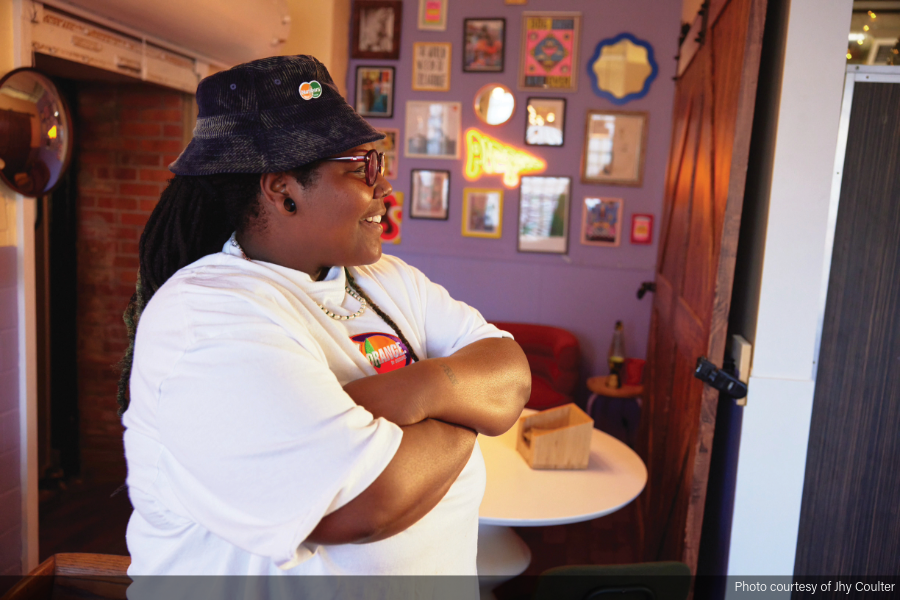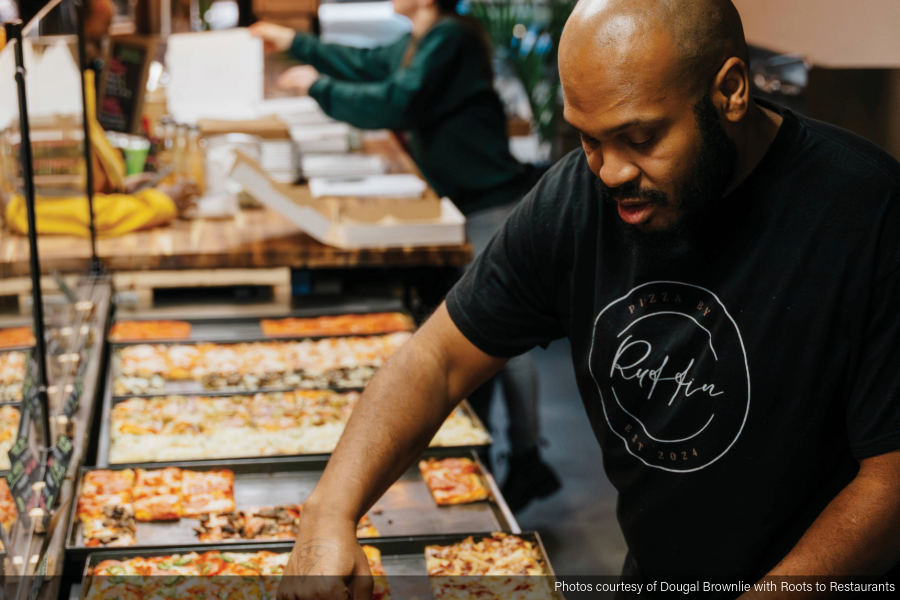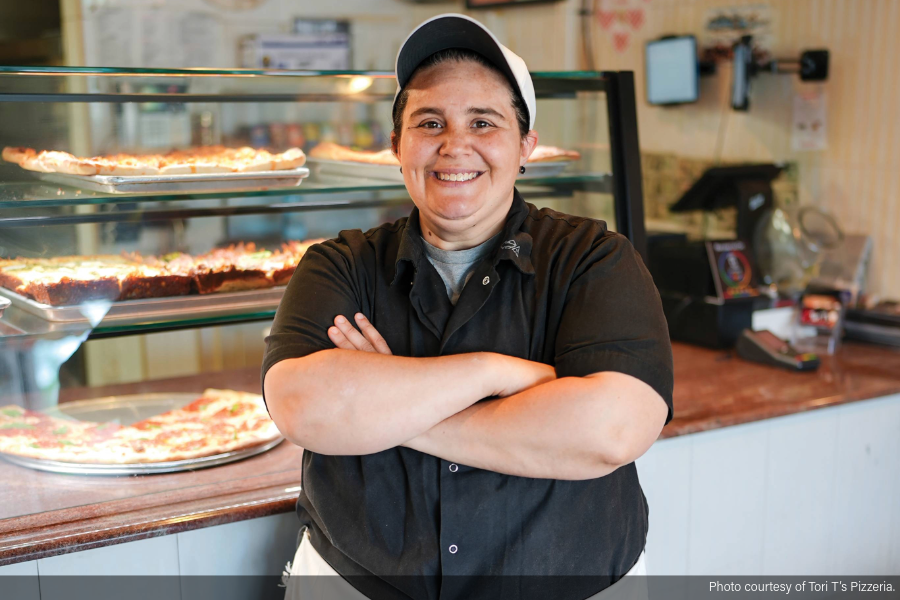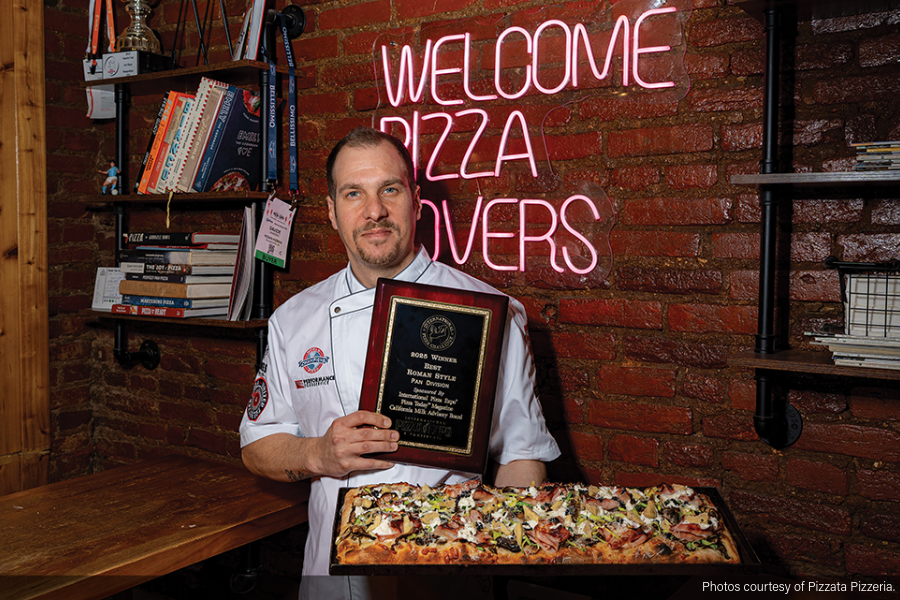Safeguard your pizzeria against liability issues
 It’s not just your pizza that’s hot.
It’s not just your pizza that’s hot.
Your business itself is a hot zone for liability. Every time someone enters or exits your premises, whether an employee or customer, you’re open to lawsuits.
“Pizza restaurants are a fast-paced environment,” says Jesse Parenti, hospitality director of the Stratton Agency, a risk and insurance specialty firm in San Carlos, California. “People let things slide. If you don’t address problems, they become worse.”
But there are steps you can take to protect yourself. “Who’s to say what will happen in a crazy court system? But you should be shielded as long as you do your homework,” says Keith George, managing director at AmWINS Program Underwriters in Camp Hill, Pennsylvania.
Here are some top risks facing pizza restaurants and suggested safeguards, from Parenti, George and Cheryl Downey, senior vice president at EPIC Insurance Brokers & Consultants of San Francisco, California.
Pitfall No. 1: Delivery Drivers
Risks: Because food delivery has increased exponentially in the marketplace, personal insurance carriers are writing policies to exclude it, Parenti says. Accident risks go up when drivers, anxious to return for the next pizza to make the turn and increase tips, drive more recklessly, Downey notes.
Your Achilles’ heel is exposed when there is physical damage to an employee’s car, and their personal auto insurance policy doesn’t take responsibility for it, Parenti says.
Even worse, as soon as the other driver’s attorney figures out that your delivery driver was on the clock, they look for who has the most limits on their insurance policy –– and will probably go after you, the business owner, George says.
Safeguards:
- When using your employees’ vehicles, buy “non-owned auto liability coverage.” This protects you against the negligence of any of your employees while operating a motor vehicle on your time, George says. Even if you do not have delivery drivers, get this insurance for other employees who may get into a car crash while working for you. For example, suppose a manager makes a bank deposit run while working and T-bones another driver.
- Purchase company-owned vehicles and have your own delivery fleet. Then insure that fleet on a regular business auto policy, George says.
- When hiring out subcontracted delivery labor, make sure your attorney reviews the subcontractor’s certificate of insurance, George says.
- Create a “safety-first culture,” Downey says. Hire experienced drivers with a good driving record and insurance. Conduct regular safety training for all drivers. Regularly verify and keep records that your drivers’ cars are well-maintained. Have a “no-cell-phone-while-driving” policy. Educate drivers to avoid distractions (i.e., pull over if you need to read a map).
Pitfall No. 2: Employment Practices
Risks: Pizza restaurants typically experience high employee turnover. “We do see in this industry practices of discrimination with race, age, ethnicity (and) gender,” George says.
Parenti notes: “You could defend and not be at fault and still pay out legal fees. Claims are exceeding $100,000. And employees can band together under a class action suit. This can go on for a couple of years, with little proof.’”
Safeguards:
- Ask your insurer for an “employee practices liability” policy, which protects against discrimination, harassment and claims with little validity until an investigation can be completed, Parenti says.
- Craft a strong human resources plan that includes a thorough employee handbook, management training covering inappropriate behavior and a policy for writing up management infractions, he says.
Pitfall No. 3: Customer Data Breaches
Risks: Someone may hack into your POS or Merchant Services System, stealing customers’ credit card and debit card data. Even if you offer credit monitoring for them for a year afterwards, your reputation is shot.
“That’s the newest hot spot,” Parenti says. “Cyber theft is moving faster than anything else.”
Safeguards:
- Invest in a cyber liability policy, which covers your business for data breaches in which criminals expose your customers’ personal information.
- Keep firewall and security software up to date and maintain a breach response plan, Downey says. Develop a crisis management plan so that you can assure the public that you have resolved the problem.
Pitfall No. 4: Slippage
Risks: Premises liability is when someone is injured from slipping, tripping –– or even chipping a tooth. “That is caused by not posting the ‘wet floor’ signs and not dry mopping after wet mopping,” Downey says.
George notes: “There’s always that possibility that a foreign object gets into a pizza or sandwich, too.”
Safeguards:
- Invest in surveillance cameras (some claims may be fraudulent, and the cameras can prove it).
- Keep records of when you last mopped floors and when the accident happens. Document the circumstances thoroughly.
- Show the customer empathy and kindness. “Let us (your insurance company) be ‘the bad guys,’” Downey says. “We don’t want the restaurant owner to start an antagonistic confrontation.”
- If you’re leasing the restaurant space, know your responsibilities for premises maintenance and the landlord’s responsibilities, in case of slips in parking lots or near your front door, George says.
Pitfall No. 5: ADA Compliance
Risks: “Attorneys are driving around to see if ramps have been put into place to accommodate wheelchairs and whether there are grab bars in restaurants. They bring a suit, and someone has to respond,” George says.
Safeguards:
- Make sure your facility is ADA-compliant. Otherwise, you’re risking an unexpected lawsuit (and the possible loss of your business) because of the cost of bringing the property up to code while also defending the suit.
If You’re Served …
If you receive a letter for a lawsuit, turn it over to your insurance broker within 30 days to avoid a default, Cheryl Downey says. The insurance company will hire an attorney for you on your behalf.
If you don’t have an insurance policy, hire an attorney specializing in that area of litigation. “For example, for an employment claim, don’t hire someone working with Workers’ Comp. It has to be that specific area of litigation,” she explains.
Give all of the documentation in your possession to the attorney to show your safety, operations, and in cases of a car crash lawsuit, your driver training efforts and the motor vehicle record for driver.
Heidi Lynn Russell specializes in writing about the issues that affect small business owners. She is a regular contributor to Pizza Today and lives in Lexington, Kentucky.
